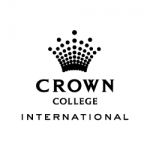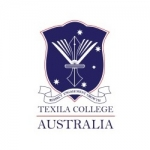Study in Australia for Indian Students

Studying abroad in Australia is a popular choice for Indian students due to its world-class education system, diverse cultural experience, and vibrant student life. Australia is home to some of the world’s top-ranked universities, and the country offers a wide range of undergraduate, postgraduate, and vocational programs across various fields. Here’s a comprehensive guide to help you understand everything you need to know about studying in Australia as an Indian student.
Why Study in Australia?
- High-Quality Education: Australia is known for its world-class education system and is home to many universities ranked among the top 100 globally. Some of the best-known universities include University of Melbourne, Australian National University (ANU), University of Sydney, University of Queensland (UQ), and University of New South Wales (UNSW). These institutions offer a wide range of programs in various disciplines, including engineering, business, IT, healthcare, arts, and sciences.
- Cultural Diversity: Australia is one of the most multicultural countries in the world, with a diverse student population. You’ll be able to interact with students from all over the globe, which can enhance your personal and professional growth. Additionally, Australia offers a rich cultural experience with a mix of urban and natural beauty, from cosmopolitan cities like Sydney and Melbourne to stunning beaches and rainforests.
- Post-Study Work Opportunities: Australia has favorable post-study work visa options for international students. After completing your studies, you can apply for a Temporary Graduate Visa (subclass 485), which allows you to stay and work in Australia for up to 4 years, depending on your qualification and the level of your study.
- Work While Studying: International students are allowed to work part-time during their studies in Australia (up to 40 hours per fortnight during the semester and full-time during breaks). This allows you to gain valuable work experience, support yourself financially, and integrate into the local job market.
- Safe and Student-Friendly Environment: Australia is considered one of the safest countries for international students. The country has a high standard of living, excellent healthcare, and student welfare services to support your well-being.
- English Language Advantage: Since Australia is an English-speaking country, studying there offers the added advantage of improving your English language skills, which can enhance your global employability.
Eligibility Requirements for Indian Students
1. Academic Qualifications:
- Undergraduate Programs: To apply for a bachelor’s degree, you need to have completed your 12th grade (higher secondary education) from a recognized board. The required marks vary depending on the university and the course you want to study. Generally, you may need a minimum of 60%-80% in your 12th-grade exams.
- Postgraduate Programs: For postgraduate courses (Master's), you should have a bachelor’s degree (3 or 4 years) from a recognized university in India. The grades or percentage required depend on the program and the university, but typically universities require a first-class or 60%-70% aggregate score in your undergraduate degree.
2. English Language Proficiency:
- IELTS (International English Language Testing System): Most Australian universities require proof of English language proficiency through exams like IELTS. The typical requirement is a minimum overall score of 6.0 to 7.0, with no individual band below 5.5 to 6.0. However, some courses may require a higher score.
- TOEFL (Test of English as a Foreign Language): Another widely accepted test. A typical score requirement for undergraduate programs is around 80-90, while for postgraduate programs it could range from 85-100.
- PTE (Pearson Test of English): Some universities may also accept PTE scores. The typical score requirement is around 50-65 for undergraduate courses and 58-75 for postgraduate courses.
3. Visa Requirements:
- To study in Australia, you must apply for a Student Visa (subclass 500). The visa allows you to study in Australia full-time, work part-time (up to 40 hours per fortnight), and stay in the country during your studies.
Required Documents for Student Visa:
- Confirmation of Enrolment (CoE): This is issued by your university once you are accepted into a course.
- Financial Proof: You must prove that you have sufficient funds to cover your tuition fees, living expenses, and travel costs. The general requirement is AUD 21,041 per year for living expenses, in addition to tuition fees.
- Genuine Temporary Entrant (GTE) Statement: You must provide a statement explaining why you wish to study in Australia, your ties to India, and your future career plans.
- Health Insurance: All international students in Australia must have Overseas Student Health Cover (OSHC) for the duration of their stay.
4. Health Insurance:
- All international students must have OSHC (Overseas Student Health Cover) while studying in Australia. This health insurance covers basic medical expenses, including doctor visits, hospitalization, and emergency ambulance services. You can purchase OSHC from approved providers like Medibank, Bupa, or Allianz Care.
Application Process
1. Research and Choose a Program:
Start by researching your options. You can visit the official websites of Australian universities to browse their programs, entry requirements, and deadlines. Some universities may also provide pathway programs if you don’t meet the academic or language requirements for direct entry.
2. Prepare Documents:
- Academic transcripts and certificates
- English proficiency test results (IELTS/TOEFL/PTE)
- Curriculum Vitae (CV)/Resume
- Letters of Recommendation (LORs)
- Statement of Purpose (SOP)
- Passport copy
- Financial documents (proof of funds)
- Health insurance details
3. Apply to Universities:
4. Wait for Admission Offer:
5. Accept the Offer and Obtain the CoE:
6. Apply for Visa:
7. Book Accommodation and Flights:
Cost of Studying and Living in Australia

1. Tuition Fees:
- Undergraduate programs: AUD 20,000 to 45,000 per year
- Postgraduate programs: AUD 22,000 to 50,000 per year
2. Living Costs:
The cost of living in Australia can range from AUD 18,000 to 27,000 per year, depending on the city and lifestyle.
- Accommodation: AUD 1,000 to 2,500 per month (varies by city)
- Food: AUD 300 to 600 per month
- Transport: AUD 100 to 200 per month
- Miscellaneous: AUD 200 to 400 per month
Major cities like Sydney, Melbourne, and Brisbane are typically more expensive to live in compared to smaller cities like Adelaide or Hobart.


3. Scholarships:
Many universities in Australia offer scholarships to international students. Some popular scholarships for Indian students include:
- Australia Awards Scholarships
- Endeavour Postgraduate Scholarship
- University-specific scholarships (check with individual universities for available options)

Post-Graduation Opportunities
1. Post-Study Work Visa (subclass 485):
After completing your studies, you can apply for a Temporary Graduate Visa (subclass 485). This allows you to stay and work in Australia for up to 4 years, depending on your qualification and the area of study. This visa gives you the opportunity to gain work experience and transition to a skilled work visa.
2. Job Market:
Australia has a robust job market, especially in sectors like healthcare, engineering, IT, education, and finance. If you graduate with skills in demand, you may be able to secure permanent residency through the Skilled Migration Program.
3. Permanent Residency (PR):
After working in Australia for a few years, you can apply for permanent residency (PR) through the General Skilled Migration (GSM) program. Points are awarded based on age, skills, qualifications, work experience, and English proficiency.
University List

York Business Institute
New South Wales, Australia

Berkeley Business Institute
New South Wales, Australia

Crown College International
Victoria, Australia

Texila College Australia
Victoria, Australia

Melbourne City College Australia
Victoria, Australia

Conclusion
Studying in Australia provides Indian students with high-quality education, excellent career opportunities, and a diverse and enriching cultural experience—the combination of affordable tuition fees.

